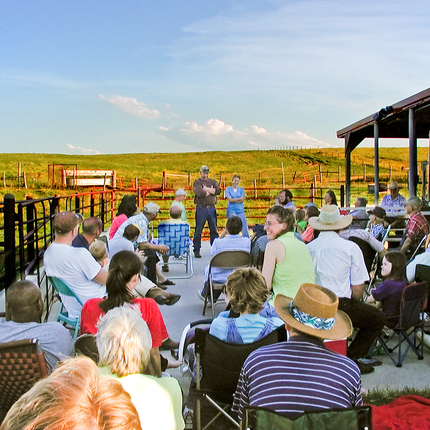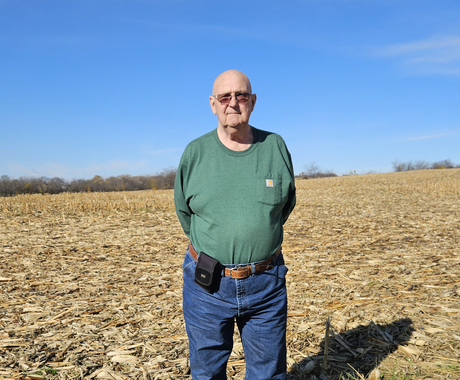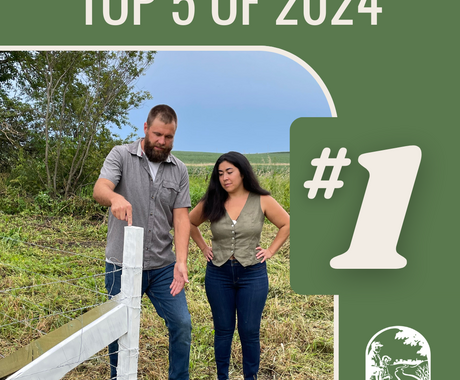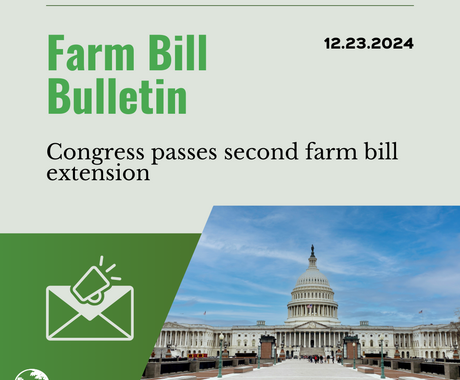Recently a new loan officer in a small rural bank reached out to me, wondering what training I could recommend for her. It´s refreshing to get a question like that. A lender who shows curiosity in learning more about new crops or ideas is a valuable asset in a small community.
In my work with beginning farmers and veterans, I´ve observed a lot of farmer/lender interactions and thought a lot about how they could be improved. So I set forth to offer my advice to this young banker. See if you agree.
Dear Jane,
Your borrowers will be in two camps: experienced farmers or new farmers. For you as a lender, there are two training themes: what farmers know and what bankers need to work with them.
Working with experienced farmers
Experienced farmers doing commodity crops will have a good sense of what they want from you. If you need to get up to speed on those crops, look for commodity association and university Extension briefings and field days.
Note I did not say experienced farmers are good at recordkeeping, budgeting, or keeping you informed. You may need to help some of them learn such things just as new farmers must.
Peter Zimmel at the Food and Agricultural Policy Research Institute at the University of Missouri has helped with two lender training programs. One is a week-long session for new ag loan officers covering the basics of ag lending. New ag lenders from across the country attend this course in Missouri.
The second is an Ag Lender Seminar series for experienced bankers to hear about new federal regulations, Farm Service Agency programs, resources available, and upcoming trends and legislation. You should see if anything like it is happening in your state.
Working with new farmers
New farmers are a special topic. It's a good idea to familiarize yourself with the array of training programs and materials available to beginning farmers. Then you will know what areas you and your bank need to address to fill in their knowledge.
Learning the contents of a financial management class would be a place to start. The new borrower training required by USDA Farm Service Agency would be another baseline training program. Your county FSA office can tell you about that.
Beginning farmers are increasingly advised to develop business plans and to become financially literate. Business plans for new farmers can be fairly simple, focusing on the financial end, especially if they are starting small.
Financial literacy will vary considerably. Mainstream beginners in the Midwest can be conversant up to commodities trading. At the other extreme, our classes for immigrant farmers often start with personal recordkeeping and introduction to banking.
USDA is funding beginning farmer training programs across the country. Check start2farm.gov and farmanswers.org for a list.
Financing programs for new farmers
Finding out about financing programs aimed specifically at new farmers is the greatest knowledge you need. In most places, that's Farm Service Agency only. Some states have their own loan or incentive programs; see a state directory here. Since FSA's interest rates are subsidized and it targets new farmers, it's the place many beginners start.
FSA intends that its borrowers 'graduate' to commercial credit. That makes it a starting place for beginners rather than competition for local banks. FSA guaranteed loans, however, are an intentional partnership with local banks. Every rural banker should know how and why to refer new farmers to FSA.
High value, direct market enterprises
Beginners tell me their lenders don't understand any crops except the major ones. New farmers looking at high value, direct marketed enterprises have to educate their lenders on the feasibility of small acreage specialty crops that sell direct to users or to high end buyers. (The FSA Microloan is a response to this growing interest.)
While I advise such farmers to build a solid case for their enterprises, open-minded and informed bankers would be a great help. Enterprise budgets are available for many crops, often developed by university Extension. The Missouri Alternatives Center has links to hundreds of Extension publications on enterprises that fit on small farms, including enterprise budgets for many of them.
You can learn more about unusual crops through the MAC site and through ATTRA's publications. In addition, ATTRA has a list of organizations that sponsor workshops and farm tours, where you could meet practitioners and see new ideas in action.
I can attest that it's a rare banker who attends a field day alongside farmers. That person invariably becomes part of the presentation due to everyone’s interest in how a bank would respond to a borrower's proposal to do something different. And such a banker always gets calls and referrals as a result of making that public show of interest.
Be that kind of banker and you will be doing us all a service.
Wyatt
Feature image: A farm tour is an excellent way for a lender to mix with farmers and learn first-hand about their needs.





